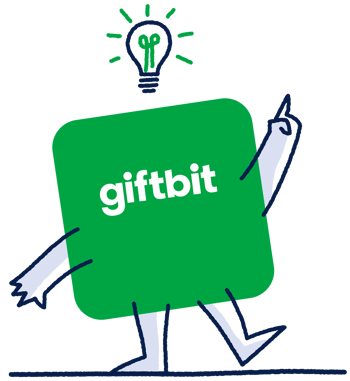Market research and healthcare may not seem related at first, but they share a common goal: understanding their target audiences and improving outcomes through research.
What's truly fascinating now is how AI is revolutionizing both industries, driving growth, and ushering in productive and beneficial changes. The potential of AI is boundless, presenting us with a future where technology and human ingenuity collaborate to shape a better world.
In market research and healthcare, with the help of artificial intelligence tools, researchers and practitioners can quickly analyze large data sets, uncover previously hidden patterns, and identify trends faster than manual processes. Additionally, AI provides insights not possible with traditional methods and automates tedious tasks such as data entry and follow-up actions, freeing up time to focus on more important issues.
In this AI Series article, we’ll discuss how AI is reinventing the field of market research and healthcare by streamlining operations, improving workflow, and providing better patient outcomes. We’ll also explore some of the most successful AI-based solutions used in both industries and the potential challenges they may face. Let’s dive in!
 Smart targeting and assessments
Smart targeting and assessments
Smart targeting is one of the many capabilities of AI technology that has shaped research processes. This term refers to AI's ability to organize and predict information about users, creating a more personalized experience.
And both the healthcare and market research sectors alike are using this technology to better understand their audiences.
With smart targeting, researchers can collect information about users without needing to ask for it. AI programs automatically collect a user's location, device type, and referral source. They also track the time of day a user visits a web page and analyze the user's site behaviors and browsing history to better predict consumer behavior.
Even healthcare organizations need to implement marketing measures to improve patient reach and better advertise their services. Healthcare services have started using smart targeting to conduct healthcare market research and better understand the types of users visiting their web pages to shape their marketing efforts related to healthcare services.
Intelligent question writing and survey design
Surveys are invaluable to any good researcher, whether the research focuses on consumer trends or understanding patient health information. However, writing effective surveys from scratch can be time-consuming and challenging, and sending out ineffective surveys is ultimately a waste of time and resources.
Some healthcare and market research companies have begun using AI to write questions for their surveys and design more user-friendly research templates.
At a basic level, companies can leverage ChatGPT and other chatbots to generate survey questions for specific topics or research objectives. These programs utilize ChatGPT's capabilities to curate questions from a database, taking into account previous answers provided. And, AI can also be used to create personalized surveys tailored to individual respondent preferences and needs.
This intelligent approach ensures survey-takers are presented with only relevant inquiries, eliminating the risk of irrelevant or redundant questions. The result? A seamless survey experience that yields valuable insights. Discover how using digital giftcards to incentive research participation - can also increase your survey response results.
BONUS: Our integration partner Zapier has recently published an enlightening article on leveraging ChatGPT for market research. Discover how you can harness the power of ChatGPT!
So, how can AI impact healthcare organizations from an advanced level?
Healthcare has also started using AI-powered survey software to design interactive market research and survey projects. These programs are built to select questions from a database, based on the answers given in previous questions. This helps ensure that survey-takers get only relevant questions and avoid irrelevant or redundant ones.
AI can also be used to create personalized surveys tailored to individual respondent preferences and needs. By combining machine learning algorithms with natural language processing (NLP) — which makes it possible for humans to talk to machines — healthcare and market research companies can leverage AI-powered technologies to create surveys that deliver targeted, meaningful insights. With the ability to scale and quickly collect data from thousands of respondents, AI empowers healthcare with a more nimble way to capture valuable customer feedback and provide intelligent analysis.
Programs like Voice AI, for example, can analyze a participant's voice inflections to gather more information about their attitudes and behaviors. In written surveys, AI-driven sentiment analysis can help researchers determine the emotional sentiment behind participant responses and specific tasks.
Automated data gathering/analysis
Analyzing research results is a skill in itself, but AI technology has all but eliminated the need for manual data analysis. Numerous programs use AI technology to extract meaningful patterns from consumer and patient data. AI can rapidly evaluate statistical trends and find significant conclusions, allowing researchers to quickly begin evaluating results.
The power of AI doesn't stop at being able to find data trends. Many AI programs have allowed researchers to glean even more valuable information from surveys than ever before. AI research programs use machine vision, facial recognition, and other tools to better understand consumer behavior and emotional responses while answering surveys or interview questions.
This data proves invaluable for both consumer-facing organizations and patient-facing ones. Of course, product companies are always looking for ways to improve their advertisements and product displays. But in the healthcare research industry, this technology could help clinicians provide more effective, personalized patient care, the ultimate goal of any healthcare organization.
Sophisticated (accurate) results
Using AI in market research and healthcare has altogether improved the accuracy of survey results, especially those with open-ended questions and more abstract topics. It has allowed researchers to glean insights beyond what they could through typical human analysis. However, as AI continues to improve, researchers must take care not to assume that, in all cases, AI's analysis of results is 100% accurate; there is still room for error.
One advantage of interpreting survey results with AI rather than human insight is the elimination of human bias. Both healthcare and market research professionals often conduct research with a particular hypothesis in mind. They're hoping to either prove or disprove a theory through the results, and this goal could influence their method of interpreting the data. But AI doesn't have opinions and can only analyze data objectively.
Streamlined market research incentives
New technology has also made incentivizing research participation faster and easier. Incentive software automatically sends incentives to participants upon completing surveys and other research tasks. With programs like Giftbit, participants can choose from a list of hundreds of brands, and then instantly redeem rewards to their favorite companies — all without the researchers needing to intervene.
Altogether, combining AI, market research, and healthcare serves to improve the efficiency, accuracy, and value of research projects. Decision-makers can use these new insights to better shape consumer products and services on one end and provide more personalized, effective health care on the other.
Ready to supercharge your market research and get actionable results?
Customize incentives for each participant and boost responses effortlessly with Giftbit! Send timely reminders through automated notifications for maximum engagement. Chat with our experts today!

Who Are Giftbits Clients - And What Do They Love About Our Platform?
From small business start-ups to tech giants, to Ivy League universities and higher education, to healthcare and public services, learn how Giftbit measures up!
Read more
Digital Rewards 101: How To Leverage New (And Improved!) Types of Incentives
Going digital with your rewards and incentives will make the entire process hassle-free—whether you're trying to improve employee...
Read more
